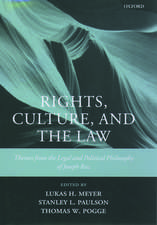The Concept of Race and Psychotherapy
Autor Jefferson M. Fishen Limba Engleză Paperback – 30 noi 2014
The ambitious volume The Concept of Race and Psychotherapy probes these questions, compelling readers to look differently at their clients (and themselves), and offering a practical framework for more effective therapy. By tracing the racial “folk taxonomies” of eight cultures in the Americas and the Caribbean, the author elegantly defines race as a fluid construct, dependent on local social, political, and historical context for meaning but meaningless in the face of science. This innovative perspective informs the rest of the book, which addresses commonly held assumptions about problem behavior and the desire to change, and presents a social-science-based therapy model, applicable to a wide range of current approaches, that emphasizes both cultural patterns and client uniqueness. Among the highlights of the coverage:
- Common elements in therapy and healing across cultures.
- The psychological appeal of racial concepts despite scientific evidence to the contrary.
- Lessons psychology can learn from anthropology.
- Three types of therapeutic relationships, with strategies for working effectively in each.
- The phenomenon of discontinuous change in brief therapy.
- Solution-focused therapy from a cross-cultural perspective.
| Toate formatele și edițiile | Preț | Express |
|---|---|---|
| Paperback (1) | 710.43 lei 43-57 zile | |
| Springer – 30 noi 2014 | 710.43 lei 43-57 zile | |
| Hardback (1) | 717.37 lei 43-57 zile | |
| Springer – 19 noi 2010 | 717.37 lei 43-57 zile |
Preț: 710.43 lei
Preț vechi: 747.82 lei
-5% Nou
Puncte Express: 1066
Preț estimativ în valută:
135.94€ • 142.29$ • 113.15£
135.94€ • 142.29$ • 113.15£
Carte tipărită la comandă
Livrare economică 31 martie-14 aprilie
Preluare comenzi: 021 569.72.76
Specificații
ISBN-13: 9781489992666
ISBN-10: 1489992669
Pagini: 200
Ilustrații: XVII, 179 p.
Dimensiuni: 155 x 235 x 11 mm
Greutate: 0.29 kg
Ediția:2011
Editura: Springer
Colecția Springer
Locul publicării:New York, NY, United States
ISBN-10: 1489992669
Pagini: 200
Ilustrații: XVII, 179 p.
Dimensiuni: 155 x 235 x 11 mm
Greutate: 0.29 kg
Ediția:2011
Editura: Springer
Colecția Springer
Locul publicării:New York, NY, United States
Public țintă
Professional/practitionerCuprins
Dedication.- Preface.- Acknowledgments.- The Myth of Race.- The Spread of the Race Meme.- How Anthropology Can Help Psychology.- Divided Loyalties and the Responsibility of Social Scientists.- The Conservative-Liberal Alliance against Freedom.- Sociocultural Theory and Therapy.- Common Elements in Therapy and Healing across Cultures.- Discontinuous Change.- Does Problem Behavior Just Happen?.- Prevention, Solution Focused Therapy, and the Illusion of Mental Disorders.- Strategic Thoughts about Solution-Focused Therapy.- A Cross-Cultural View of Solution Focused Therapy.- References.- Credits.- Index.
Recenzii
From the reviews:
“The Concept of Race and Psychotherapy makes creative and important contributions to understanding therapy as a social influence process, to broadening the definition of the social and cultural context of therapy, and to applying these insights clinically. Its discussion of race is particularly thorough, thought-provoking, and useful for understanding clients from varied cultural backgrounds. The book is highly recommended not only for therapists and therapists in training, but for psychologists and social scientists interested in race and social influence."
- Irving Kirsch
Professor of Psychology
University of Hull, England
“With a unique background in psychology and cross-cultural experience, Professor Jefferson Fish has written an important book that could not have been written by anyone else. The Concept of Race and Psychotherapy is a clear, highly readable, and insightful analysis of how race came to be a worldview in the United States. It is a cultural category that parades as universal and scientific. With assists from a careful reading of scientific and cross-cultural research, Fish skillfully explains why race is a local (cultural) idea rather than a scientific universal. This book will be of great use to anyone interested in how a cultural concept becomes powerful, the work that this particular concept does in distorting perceptions, and especially how race gets into fields of study, in this case psychology and psychotherapy.”
- Alan Goodman
Vice President for Academic Affairs and Dean of Faculty, Hampshire College
Past President, American Anthropological Association
“A good course in anthropology teaches that biological races do not exist among humans but that culture is a real phenomenon that greatly influences human behavior. If anthropologists are correct, then many psychologists’ assumptions that biological races are real and that humancultural influences on behavior are not extremely important are wrong. This should greatly influence psychotherapy. In this exceptional book, Fish discusses the concepts of race and culture, and explains why psychologists and psychotherapists need to take anthropological concepts into account in both theory and practice.”
- Robert W. Sussman
Professor of Anthropology, Washington University, St. Louis
Editor Emeritus, American Anthropologist
Editor, Yearbook of Physical Anthropology
Secretary, Section H (Anthropology), American Association for the Advancement of Science
“This wide-ranging, thought-provoking book offers significant contributions to the theory and practice of therapy. By integrating ideas from cultural anthropology, systems theory, and mainstream psychology, The Concept of Race and Psychotherapy deepens our understanding of how creative, culturally-informed clinicians can foster successful problem resolution and behavior change. I found especially valuable the sections on solution focused therapy, discontinuous change, and why problem maintenance is usually more relevant to therapy than whatever may have ‘caused’ a problem in the first place.”
- Michael J. Rohrbaugh
Professor of Psychology and Family Studies/Human Development
Director, Psychology Department Clinic
University of Arizona
“The text demonstrates an impressive summation of concepts from the social and natural sciences that serve to illuminate how culture influences the field of psychology with respect to the theory that underlies how psychologists practice. … The Concept of Race and Psychotherapy is an essential and thought-provoking text for psychologists. … provides information and perspective that every psychology trainee and professional should acknowledge and incorporate into psychological practice.” (Maryam M. Jernigan, PsycCRITIQUES, Vol. 56 (26), June, 2011)
“The Concept of Race and Psychotherapy makes creative and important contributions to understanding therapy as a social influence process, to broadening the definition of the social and cultural context of therapy, and to applying these insights clinically. Its discussion of race is particularly thorough, thought-provoking, and useful for understanding clients from varied cultural backgrounds. The book is highly recommended not only for therapists and therapists in training, but for psychologists and social scientists interested in race and social influence."
- Irving Kirsch
Professor of Psychology
University of Hull, England
“With a unique background in psychology and cross-cultural experience, Professor Jefferson Fish has written an important book that could not have been written by anyone else. The Concept of Race and Psychotherapy is a clear, highly readable, and insightful analysis of how race came to be a worldview in the United States. It is a cultural category that parades as universal and scientific. With assists from a careful reading of scientific and cross-cultural research, Fish skillfully explains why race is a local (cultural) idea rather than a scientific universal. This book will be of great use to anyone interested in how a cultural concept becomes powerful, the work that this particular concept does in distorting perceptions, and especially how race gets into fields of study, in this case psychology and psychotherapy.”
- Alan Goodman
Vice President for Academic Affairs and Dean of Faculty, Hampshire College
Past President, American Anthropological Association
“A good course in anthropology teaches that biological races do not exist among humans but that culture is a real phenomenon that greatly influences human behavior. If anthropologists are correct, then many psychologists’ assumptions that biological races are real and that humancultural influences on behavior are not extremely important are wrong. This should greatly influence psychotherapy. In this exceptional book, Fish discusses the concepts of race and culture, and explains why psychologists and psychotherapists need to take anthropological concepts into account in both theory and practice.”
- Robert W. Sussman
Professor of Anthropology, Washington University, St. Louis
Editor Emeritus, American Anthropologist
Editor, Yearbook of Physical Anthropology
Secretary, Section H (Anthropology), American Association for the Advancement of Science
“This wide-ranging, thought-provoking book offers significant contributions to the theory and practice of therapy. By integrating ideas from cultural anthropology, systems theory, and mainstream psychology, The Concept of Race and Psychotherapy deepens our understanding of how creative, culturally-informed clinicians can foster successful problem resolution and behavior change. I found especially valuable the sections on solution focused therapy, discontinuous change, and why problem maintenance is usually more relevant to therapy than whatever may have ‘caused’ a problem in the first place.”
- Michael J. Rohrbaugh
Professor of Psychology and Family Studies/Human Development
Director, Psychology Department Clinic
University of Arizona
“The text demonstrates an impressive summation of concepts from the social and natural sciences that serve to illuminate how culture influences the field of psychology with respect to the theory that underlies how psychologists practice. … The Concept of Race and Psychotherapy is an essential and thought-provoking text for psychologists. … provides information and perspective that every psychology trainee and professional should acknowledge and incorporate into psychological practice.” (Maryam M. Jernigan, PsycCRITIQUES, Vol. 56 (26), June, 2011)
Notă biografică
Jefferson M. Fish, Ph.D. is Professor Emeritus of Psychology at St. John's University, New York, where he has served as Department Chair and also as Director of the PhD Program in Clinical Psychology. His specialties are cross-cultural psychology and clinical psychology. Within cross-cultural psychology his writings have dealt mainly with varying cultural conceptions of “race,” the “race”-IQ debate, and Brazil; and he has been a Fulbright scholar in Brazil and China. Within clinical psychology, he has written widely on psychotherapy as a social influence process, on social and cultural factors in therapy, and on brief therapy—including brief behavioral, cognitive, strategic, systemic, and solution focused therapies, and on the use of hypnosis in brief therapy. He has also been active in the field of drug policy, and his publications include international and American sub-cultural perspectives on the issue.
Dr. Fish is the author of Culture and Therapy: An Integrative Approach, Placebo Therapy, and Dimensões da Empatia Terapêutica (Dimensions of Therapeutic Empathy, published in Portuguese); he is the editor of Race and Intelligence: Separating Science from Myth, Drugs and Society: U. S. Public Policy, Is Our Drug Policy Effective? Are There Alternatives?, and How to Legalize Drugs; and he is the co-editor of Handbook of Culture, Therapy, and Healing, Principles of Multicultural Counseling and Therapy, and Psychology: Perspectives and Practice. He is the author of more than a hundred journal articles, book chapters, and other works; and he has served on the editorial boards of eight journals in the United States, Brazil, and India, and has been a consulting editor or invited reviewer for eight others.
Dr. Fish is a past Treasurer of the International Council of Psychologists, a past Chair of the Psychology Section of theNew York Academy of Sciences, a past President of the Division of Academic Psychology of the New York State Psychological Association, a past Member of the Board of Directors of the American Board of Family Psychology, a former Member of the Board of Directors and of the Executive Committee of Partnership for Responsible Drug Information, and former Adjunct Coordinator of the Committee on Drugs and the Law of the Association of the Bar of the City of New York. He is a Fellow of the American Psychological Association, of the American Psychological Society, and of the American Association of Applied and Preventive Psychology. He has attained American Board of Professional Psychology Diplomate status in Clinical Psychology and in Family Psychology.
Dr. Fish is married to the anthropologist Dolores Newton, who studies the Krikati and related tribes of Brazilian Indians. He spent two years as a Visiting Professor in Brazil, during which time he lived for a month with the Krikati; and he has returned to Brazil numerous times. He speaks English, Portuguese, French, Spanish, and German.
Dr. Fish is the author of Culture and Therapy: An Integrative Approach, Placebo Therapy, and Dimensões da Empatia Terapêutica (Dimensions of Therapeutic Empathy, published in Portuguese); he is the editor of Race and Intelligence: Separating Science from Myth, Drugs and Society: U. S. Public Policy, Is Our Drug Policy Effective? Are There Alternatives?, and How to Legalize Drugs; and he is the co-editor of Handbook of Culture, Therapy, and Healing, Principles of Multicultural Counseling and Therapy, and Psychology: Perspectives and Practice. He is the author of more than a hundred journal articles, book chapters, and other works; and he has served on the editorial boards of eight journals in the United States, Brazil, and India, and has been a consulting editor or invited reviewer for eight others.
Dr. Fish is a past Treasurer of the International Council of Psychologists, a past Chair of the Psychology Section of theNew York Academy of Sciences, a past President of the Division of Academic Psychology of the New York State Psychological Association, a past Member of the Board of Directors of the American Board of Family Psychology, a former Member of the Board of Directors and of the Executive Committee of Partnership for Responsible Drug Information, and former Adjunct Coordinator of the Committee on Drugs and the Law of the Association of the Bar of the City of New York. He is a Fellow of the American Psychological Association, of the American Psychological Society, and of the American Association of Applied and Preventive Psychology. He has attained American Board of Professional Psychology Diplomate status in Clinical Psychology and in Family Psychology.
Dr. Fish is married to the anthropologist Dolores Newton, who studies the Krikati and related tribes of Brazilian Indians. He spent two years as a Visiting Professor in Brazil, during which time he lived for a month with the Krikati; and he has returned to Brazil numerous times. He speaks English, Portuguese, French, Spanish, and German.
Textul de pe ultima copertă
Is our society color-blind? Trans-racial? Post-racial? And what—if anything—should this mean to professionals in clinical practice with diverse clients?
The ambitious volume The Concept of Race and Psychotherapy probes these questions, compelling readers to look differently at their clients (and themselves), and offering a practical framework for more effective therapy. By tracing the racial “folk taxonomies” of eight cultures in the Americas and the Caribbean, the author elegantly defines race as a fluid construct, dependent on local social, political, and historical context for meaning but meaningless in the face of science. This innovative perspective informs the rest of the book, which addresses commonly held assumptions about problem behavior and the desire to change, and presents a social-science-based therapy model, applicable to a wide range of current approaches, that emphasizes both cultural patterns and client uniqueness. Among the highlights of the coverage:
The ambitious volume The Concept of Race and Psychotherapy probes these questions, compelling readers to look differently at their clients (and themselves), and offering a practical framework for more effective therapy. By tracing the racial “folk taxonomies” of eight cultures in the Americas and the Caribbean, the author elegantly defines race as a fluid construct, dependent on local social, political, and historical context for meaning but meaningless in the face of science. This innovative perspective informs the rest of the book, which addresses commonly held assumptions about problem behavior and the desire to change, and presents a social-science-based therapy model, applicable to a wide range of current approaches, that emphasizes both cultural patterns and client uniqueness. Among the highlights of the coverage:
- Common elements in therapy and healing across cultures.
- The psychological appeal of racial concepts despite scientific evidence to the contrary.
- Lessons psychology can learn from anthropology.
- Three types of therapeutic relationships, with strategies for working effectively in each.
- The phenomenon of discontinuous change in brief therapy.
- Solution-focused therapy from a cross-cultural perspective.
Caracteristici
Offers an integrative model of therapy that incorporates cultural aspects Applies model to major therapy modes - psychoanalytic, behavioral, and systemic Demonstrates common elements in therapy and healing across cultures Provides a cross-cultural view of solution-focused therapy Provides a practical connection between anthropology and psychology Includes supplementary material: sn.pub/extras













